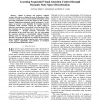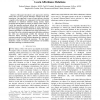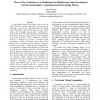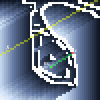986 search results - page 123 / 198 » Zero-data Learning of New Tasks |
ICRA
2009
IEEE
15 years 4 months ago
2009
IEEE
² Similar to humans and primates, artificial creatures like robots are limited in terms of allocation of their resources to huge sensory and perceptual information. Serial process...
IROS
2008
IEEE
15 years 4 months ago
2008
IEEE
—This paper introduces a new approach to develop robots that can learn general affordance relations from their experiences. Our approach is a part of larger efforts to develop a ...
HICSS
2000
IEEE
15 years 2 months ago
2000
IEEE
As knowledge becomes the primary focus of work in many industries, virtual communities and groups are emerging as part of new organizational forms. Within these virtual forms, eff...
109
click to vote
ICCV
2009
IEEE
16 years 21 days ago
2009
IEEE
We introduce a new class of image features, the Ray feature set, that consider image characteristics
at distant contour points, capturing information which is difficult to repre...
CVPR
2005
IEEE
15 years 12 months ago
2005
IEEE
We address the problem of segmenting 3D scan data into objects or object classes. Our segmentation framework is based on a subclass of Markov Random Fields (MRFs) which support ef...




